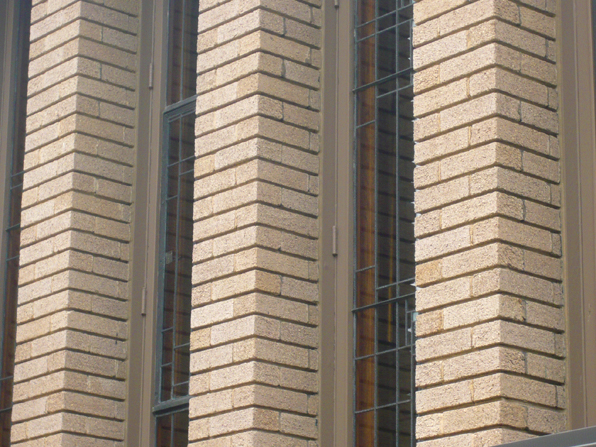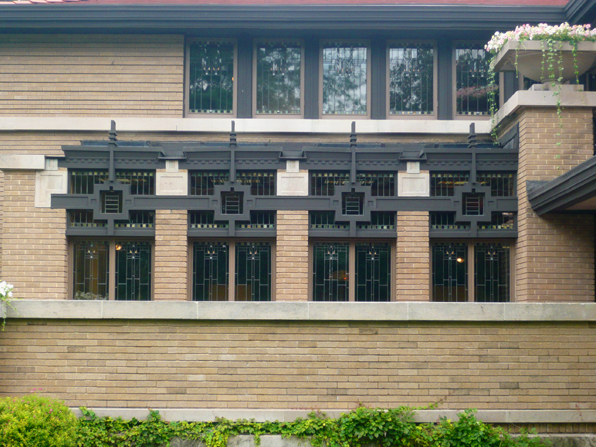Frank Lloyd Wright's Meyer May House, Grand Rapids, Michigan
 This last summer I had the opportunity to be in Grand Rapids, Michigan, home of Steelcase furniture, and the magnificently restored Meyer May house. Designed by Frank Lloyd Wright in 1909, the house was designed and built just as Wright's marriage was falling apart and he was soon to depart to Europe to escape the scandal and notoriety.
This last summer I had the opportunity to be in Grand Rapids, Michigan, home of Steelcase furniture, and the magnificently restored Meyer May house. Designed by Frank Lloyd Wright in 1909, the house was designed and built just as Wright's marriage was falling apart and he was soon to depart to Europe to escape the scandal and notoriety.
Like the Robie House, designed in Chicago just a year or two earlier, this house sits on a residential corner lot and shares with as well Wright's signature hidden entryway and layered horizontal composition. Even though the Robie House is more dramatic, being more decidedly long and narrow, the Meyer May house actually does a better job of addressing the spatial situation of the corner lot. However, this does lead to a fairly complex interior with spaces driving in two directions, maybe anticipating the more pinwheeling designs of later houses.
You can see many of the typical Wright details here - the flush vertical joints and deeply scored horizontal joints of the masonry, the wide cantilevered, hovering roof planes, the delicate leaded windows.
And, like in some many of Wright's houses built during this phase of his career, a complex and devoted attention to some rather fussy details like these Living Room windows. One can't help but speculate that this heavy grille work on street-facing windows was as much defensive as decorative, a spill-over from Wright's domestic troubles, keeping the world at bay as much as providing light and views. I have often thought that his growing predilection for the increasingly hidden and obscured entries of houses of his from this period are also an echo of the growing demand for privacy and avoidance of the public gaze that eventually surfaces in Wright's full retreat from Oak Park and Chicago to rural Spring Green, Wisconsin.
In any case, the Meyer May house is not only an excellent and under-appreciated work of Wright's from this period, it is also one of the very best examples of a period restoration that feels complete and careful without feeling like a museum (even though it is of sorts). Steelcase purchased the home in 1985 and painstakingly restored the entire structure including sourcing many Wright-designed furniture and textile pieces to fill it. And best of all and a great testament to the new owners, the house is fully available for tours for FREE, no reservations needed. Thank you Steelcase for the great renovation and most importantly for allowing it to be viewed by anyone.


